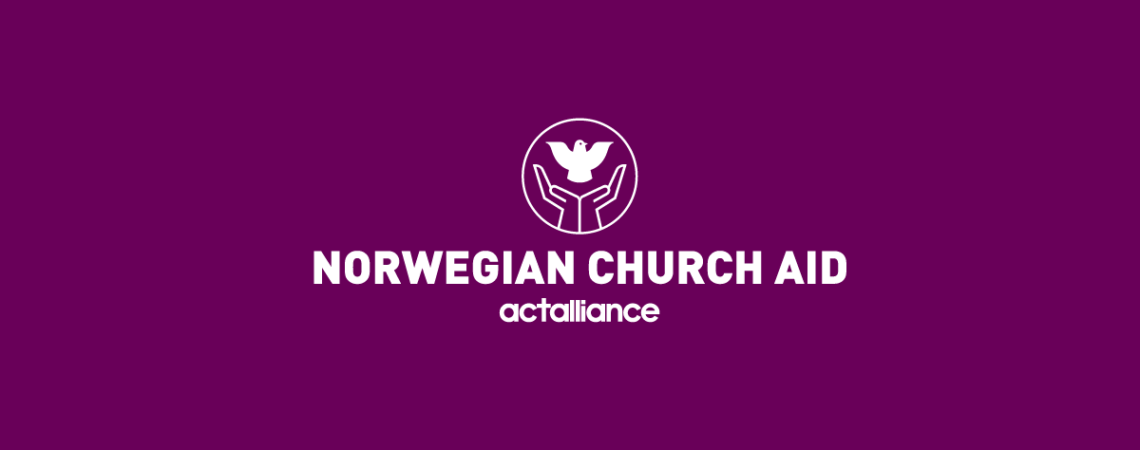
Norwegian Church Aid (NCA) has been operating in northeast Nigeria since 2017, delivering integrated humanitarian assistance in WASH, Sexual and Gender Based Violence (SGBV), and Adolescent Sexual and Reproductive Health (ASRH) in conflict-affected areas in Borno LGAs. NCA has rich experience in providing services in preventing and responding to violence against women and girls with a vision of: Women and girls live in a world where they are valued and respected members of their community and able to: live free from violence and inequality; pursue their potential, and exercise their rights to their own safety, equality, and voice. NCA have been implementing GBV in Northeast, Borno States – Dikwa, Pulka and Monguno LGAs camps since 2017. NCA, is currently implemented UNICEF projects which engages women and girls in local production of soap (liquid and bar soap) and sanitary wear/ pads in different wars in Bade and Shani Local Governments.
Menstruation in the life of women especially adolescent and women of reproductive age is a normal aspect of their lives yet challenging especially in a world filled with inequality and discrimination. Lack of proper education on menstruation and lack of materials to manage period has affected a lot of women especially young adolescent girls. Young schoolgirls may miss school during their period due to lack of facilities or necessary supplies. Also, use of improvised menstrual health materials can lead to illness. Taboos, myths and shame surrounding menstruation can lead to teasing, shaming and exclusion from daily activities and have a negative effect on girls’ feelings of dignity. They will be distracted or less productive during school and other activities due to pain, discomfort, or fear of leaks. Adolescents especially experience extremely painful periods which can affect their attendance and performance at school. If not managed in an appropriate way, menstruation can interrupt daily life especially for adolescent girls and young women. A lack of adequate facilities and materials, restrictions on girls’ movements during their period and feeling ashamed or ‘unclean’ also contribute to girls skipping school.
Period-shame is rooted in gender inequality. Cultural and religious traditions around periods are often derived from discriminatory, patriarchal norms about a girl’s status and place in society. As a result, girls and women are often expected to refrain from normal activities, such as bathing or cooking and may even be banished from the home during their period. These restrictions and negative attitudes towards menstruation affect girls’ self-esteem.
In coordination with local governments, GBV and WASH, the consultant will be training staff and community-based artisans in production of reusable pad. The reusable pads will be produced by women in various wards and or Women and girls’ safes to enable girls and women effectively manage menstrual with dignity, respect and feel confident and stay in school and teach them how to improve their menstrual health and tackle period-shame. The consultant will also provide technical advice on materials needed for production of reusable sanitary materials.
Purpose of the Consultancy
The purpose of this consultancy focuses on building capacity of staffs and community-based artisans who will be cascading the training to women and girls in various wards in the LGAs, to ensure that school children and adults alike are empowered to engage in the promotion and practice of effective menstrual hygiene management. There shall also be an MHM lab, located at women and girl’s safe spaces where reusable pads will be produced. An MHM lab will be set up so that it can ensure sustainability after the training is completed and so that there will be continuous production of reusable pads by the trained participants.
The main objective of this consultancy is to train staff and community-based artisans on how to make reusable sanitary pads effectively. The specific objectives include:
- Providing comprehensive knowledge about menstrual hygiene management, including the importance of using hygienic menstrual products.
- Equipping artisans with the technical skills required to produce reusable sanitary pads, including cutting, sewing, and assembling techniques.
- Promoting quality control measures to ensure that the produced sanitary pads meet the required standards.
- Enhancing artisans’ and staffs understanding of sustainable practices in the production process, such as using eco-friendly materials and minimizing waste generation.
- Facilitating knowledge transfer and capacity building among staff and artisans, enabling them to become trainers themselves in the future.
Expected Deliverables and outputs.
- Staff and community-based artisans have knowledge and skills of how to produce, use and hygienically maintain reusable sanitary pads.
- Technical advice on ecofriendly materials and supplies for production of sanitary pads.
- Development of comprehensive and tailored sanitary pad production training curriculum, guidance notes, manuals, and visual aids to be used by staff and community- based artisans to ensure knowledge transfer and sharing.
- Have functional MHM lab in Shani and Bade.
Time frame
The consultant will be engaged for a period of 5 days per location (Bade & Shani) starting from (4th September 2023).
How to apply
Application Deadline
Interested applicants should submit the following application materials to:
Procurement.NG@nca.no with the application subject line heading “Consultant for Training on Reusable Sanitary Pads Production, Bade and Shani LGA” no later than Thursday 31st August 2023 at 12:00 hrs. The application package should include the following:
- Detailed CV and cover letter, highlighting your previous relevant consultancy work.
- Attach professional certificates attained.
- Detailed budget stipulating all-inclusive fees
- Certified copy of registration/incorporation document if applicable.
Key Qualifications
Requirements
The ideal consultant should possess the following qualifications:
- Expertise in menstrual hygiene management and reusable sanitary pad production.
- Experience in designing and delivering training programs for adult learners.
- Strong technical skills in cutting, sewing, and assembling textiles.
- Knowledge of quality control measures in textile production.
- Familiarity with sustainable practices in product manufacturing.
- Excellent communication and facilitation skills.
- Fluent in English, Hausa other local languages in Bade and Shani